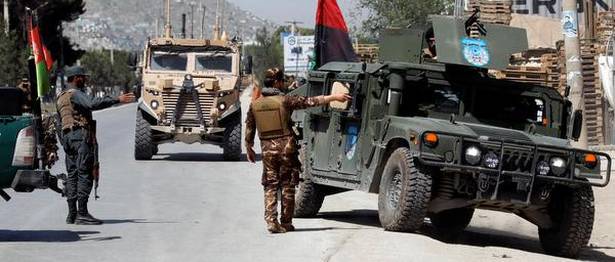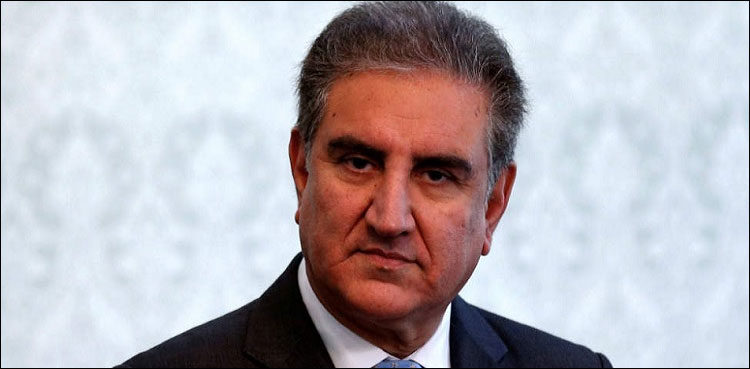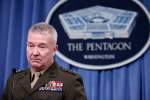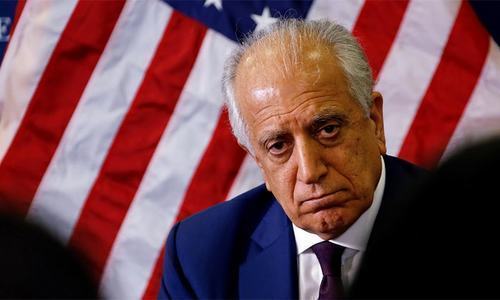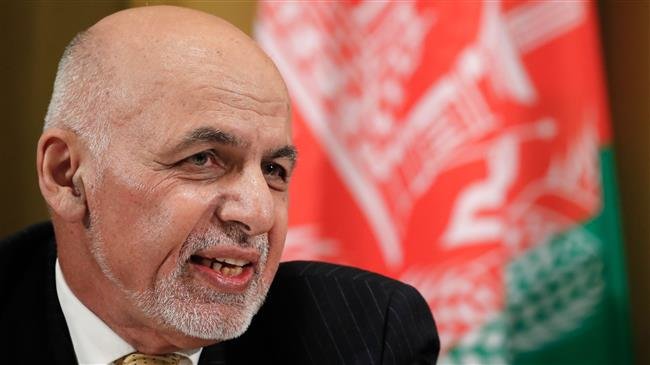Pakistan for the first time joined the US, Russia and China’s trilateral consultations on the Afghanistan peace process.
Publish dateSunday 14 July 2019 - 01:46
Story Code : 188272
The US, China, Russia and Pakistan have jointly urged the Taliban to immediately agree to a ceasefire and begin direct negotiations with the Afghanistan government to end the 18-year violence in the war-torn country.
In a joint statement, issued on Friday following the conclusion of a meeting on the Afghan peace process held in Beijing on July 10-11, they re-affirmed that the negotiations should be “Afghan-led and Afghan-owned” and produce a peace framework as soon as possible.
“This framework should guarantee the orderly and responsible transition of the security situation and detail an agreement on a future inclusive political arrangement acceptable to all Afghans,” it said.
The US, Russia, China and Pakistan have asked relevant parties to grasp the opportunity for peace and start immediately the intra-Afghan negotiations between the Taliban, the Afghanistan government and other Afghans, the statement said.
Pakistan for the first time joined the US, Russia and China’s trilateral consultations on the Afghanistan peace process.
Welcoming Pakistan in joining the consultation, the statement said, “They believe that Pakistan can play an important role in facilitating peace in Afghanistan.”
Pakistan appreciated the constructive efforts by the China-Russia-US trilateral consultation on the Afghan peace process, it said, adding that the four countries encouraged all parties to take steps to reduce violence, leading to a comprehensive and permanent ceasefire that starts with intra-Afghan negotiations.
Exchanging views on the current situation and joint efforts for realising a political settlement to advance peace, stability and prosperity of Afghanistan and the region, the four nations emphasised the importance of the trilateral consensus on the Afghan peace process reached in Moscow on April 25.
They welcomed recent positive progress as the crucial parties concerned have advanced their talks and increased contacts with each other and also the intra-Afghan meetings held in Moscow and Doha.
Meanwhile, in Washington, ahead of Prime Minister Imran Khan’s visit to the US, the Pentagon has said Pakistan must play a key role in the peaceful resolution of the long-standing war in Afghanistan as it has actively supported the reconciliation process and helped in bringing the Taliban leaders to the negotiation table.
The US’ condition-based strategy, punctuated by an increase in military pressure on Taliban commanders, has helped set the conditions for Taliban leadership to initiate peace negotiations with the US, it said in a latest report to the Congress on Friday.
President Donald Trump has been critical of Pakistan’s role in the fight against terrorism, especially Islamabad’s actions in war-ravaged Afghanistan. The Trump administration has suspended security and other assistance to Pakistan, saying Islamabad in return has given only “lies and deceit.”
A top US general, however, said that President Trump’s South Asia Strategy recognises Pakistan as a key partner in achieving US interests in South Asia, including developing a political settlement in Afghanistan; defeating al-Qaeda and ISIS-Khorasan(ISIS-K); providing logistical access for US forces; and enhancing regional stability.
The Pentagon said that the US is actively engaged in the negotiations with a delegation from Taliban and, separately, with the representatives of the Afghanistan Government. It is led by Special US Representatives for Afghan Reconciliation Zalmay Khalilzad.
“Pakistan must play a key role in a peaceful resolution to the war in Afghanistan,” it said.
Afghanistan-Pakistan border region situation
The Afghanistan-Pakistan border region remains a sanctuary for various groups, including the Taliban and its component the Haqqani Network (HQN), the al-Qaeda(AQ), the al-Qaeda in the Indian Subcontinent (AQIS), the Lashkar-e-Taiba (LeT), the Tehreek-e-Taliban Pakistan (TTP), the ISIS-K, and the Islamic Movement of Uzbekistan (IMU), it said.
“Terrorist sanctuaries on both sides of the border present security challenges for Afghanistan and Pakistan, and pose a threat to the regional security and stability,” it said.
Noting that Afghan security forces are likely to clash with Pakistani forces along the border, the report said it would strain limited resources and heighten regional tensions.
It said despite an escalating border skirmish in May, Afghanistan President Ashraf Ghani and Khan were effectively able to de-escalate the situation peacefully.
“Pakistan is actively supporting Afghan reconciliation process. In the last several months, Pakistan played a constructive role in attempting to bring Taliban leaders to the negotiating table,” the Pentagon told the Congress.
In January, Pakistan’s Foreign Minister Qureshi met with the special envoy of the Afghanistan’s President for the peace talks, it said, adding. Separately, Pakistani security forces continued fencing along the Afghanistan border region to stop the flow of anti-Pakistan militants from entering its territory.
Observing that Taliban is attempting to use its battlefield efforts to strengthen its negotiating position with US, the Pentagon said throughout the winter, it conducted attacks against the Afghan and Coalition forces.
“Recent peace negotiations have not halted Taliban’s military operations and asymmetric attacks,” it said, adding Pakistani military operations had no observable impact on Taliban and Haqqani Network battlefield activities.
In a joint statement, issued on Friday following the conclusion of a meeting on the Afghan peace process held in Beijing on July 10-11, they re-affirmed that the negotiations should be “Afghan-led and Afghan-owned” and produce a peace framework as soon as possible.
“This framework should guarantee the orderly and responsible transition of the security situation and detail an agreement on a future inclusive political arrangement acceptable to all Afghans,” it said.
The US, Russia, China and Pakistan have asked relevant parties to grasp the opportunity for peace and start immediately the intra-Afghan negotiations between the Taliban, the Afghanistan government and other Afghans, the statement said.
Pakistan for the first time joined the US, Russia and China’s trilateral consultations on the Afghanistan peace process.
Welcoming Pakistan in joining the consultation, the statement said, “They believe that Pakistan can play an important role in facilitating peace in Afghanistan.”
Pakistan appreciated the constructive efforts by the China-Russia-US trilateral consultation on the Afghan peace process, it said, adding that the four countries encouraged all parties to take steps to reduce violence, leading to a comprehensive and permanent ceasefire that starts with intra-Afghan negotiations.
Exchanging views on the current situation and joint efforts for realising a political settlement to advance peace, stability and prosperity of Afghanistan and the region, the four nations emphasised the importance of the trilateral consensus on the Afghan peace process reached in Moscow on April 25.
They welcomed recent positive progress as the crucial parties concerned have advanced their talks and increased contacts with each other and also the intra-Afghan meetings held in Moscow and Doha.
Meanwhile, in Washington, ahead of Prime Minister Imran Khan’s visit to the US, the Pentagon has said Pakistan must play a key role in the peaceful resolution of the long-standing war in Afghanistan as it has actively supported the reconciliation process and helped in bringing the Taliban leaders to the negotiation table.
The US’ condition-based strategy, punctuated by an increase in military pressure on Taliban commanders, has helped set the conditions for Taliban leadership to initiate peace negotiations with the US, it said in a latest report to the Congress on Friday.
President Donald Trump has been critical of Pakistan’s role in the fight against terrorism, especially Islamabad’s actions in war-ravaged Afghanistan. The Trump administration has suspended security and other assistance to Pakistan, saying Islamabad in return has given only “lies and deceit.”
A top US general, however, said that President Trump’s South Asia Strategy recognises Pakistan as a key partner in achieving US interests in South Asia, including developing a political settlement in Afghanistan; defeating al-Qaeda and ISIS-Khorasan(ISIS-K); providing logistical access for US forces; and enhancing regional stability.
The Pentagon said that the US is actively engaged in the negotiations with a delegation from Taliban and, separately, with the representatives of the Afghanistan Government. It is led by Special US Representatives for Afghan Reconciliation Zalmay Khalilzad.
“Pakistan must play a key role in a peaceful resolution to the war in Afghanistan,” it said.
Afghanistan-Pakistan border region situation
The Afghanistan-Pakistan border region remains a sanctuary for various groups, including the Taliban and its component the Haqqani Network (HQN), the al-Qaeda(AQ), the al-Qaeda in the Indian Subcontinent (AQIS), the Lashkar-e-Taiba (LeT), the Tehreek-e-Taliban Pakistan (TTP), the ISIS-K, and the Islamic Movement of Uzbekistan (IMU), it said.
“Terrorist sanctuaries on both sides of the border present security challenges for Afghanistan and Pakistan, and pose a threat to the regional security and stability,” it said.
Noting that Afghan security forces are likely to clash with Pakistani forces along the border, the report said it would strain limited resources and heighten regional tensions.
It said despite an escalating border skirmish in May, Afghanistan President Ashraf Ghani and Khan were effectively able to de-escalate the situation peacefully.
“Pakistan is actively supporting Afghan reconciliation process. In the last several months, Pakistan played a constructive role in attempting to bring Taliban leaders to the negotiating table,” the Pentagon told the Congress.
In January, Pakistan’s Foreign Minister Qureshi met with the special envoy of the Afghanistan’s President for the peace talks, it said, adding. Separately, Pakistani security forces continued fencing along the Afghanistan border region to stop the flow of anti-Pakistan militants from entering its territory.
Observing that Taliban is attempting to use its battlefield efforts to strengthen its negotiating position with US, the Pentagon said throughout the winter, it conducted attacks against the Afghan and Coalition forces.
“Recent peace negotiations have not halted Taliban’s military operations and asymmetric attacks,” it said, adding Pakistani military operations had no observable impact on Taliban and Haqqani Network battlefield activities.
avapress.net/vdchq6nzi23n6id.01t2.html
Tags
Top hits
